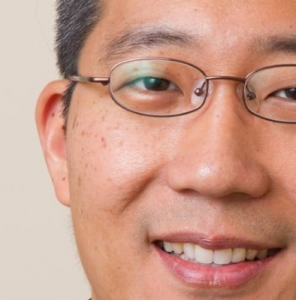aNewDomain — If you’re really luck, you might succeed almost as soon as you start trying. In that case, you retire immediately and rest on your laurels.
— If you’re really luck, you might succeed almost as soon as you start trying. In that case, you retire immediately and rest on your laurels.
That’s unsatisfying, though. Las Vegas was build on the intuition that few people have the willpower to walk away from the roulette wheel right after they win. And even if you do, get used to living with the L word — lucky! — for all the rest of the days of your life.
 But intelligence, hard work and brilliant insight only increase the chances of success. They certainly don’t guarantee it.
But intelligence, hard work and brilliant insight only increase the chances of success. They certainly don’t guarantee it.A mathematical formula for success
 If you reduce the cost of failure, even a string of failures can’t take you out of the game. If you’re forced to leave the table when you’re down, you’ll never end up in the black.
If you reduce the cost of failure, even a string of failures can’t take you out of the game. If you’re forced to leave the table when you’re down, you’ll never end up in the black.Also, you have to aim high — just not so high as to eliminate the chances of success. You want to tweak it so the rewards of each success far outweigh the costs of the failures along the way.
What we end up with, then, is a formula that looks something like this:
Success = Sum (1 to N, where N = #Attempts) for f (Chance of Success * Benefits of Success – [1 – Chance of Success] * Cost of Failure)
Feel free to offer a better mathematical statement in the comments; I’m not a mathematician. But you get the idea.
This formula describes the same problem venture capitalists are usually trying to solve for. Think about it. VC funds invest in 20+ companies per fund, giving them a very good chance that they’ll have at least one success, and a good chance to have more than one. To reduce the cost of failure, they set up funds that let them invest smaller amounts up front and double down on early winners.
The option value to abandon investments that don’t seem to be working helps reduce the average cost of failure in the portfolio.
Venture capitalists tend to focus on “venture scale” investments — that is, startups that could conceivably be worth billions of dollars. Outside outcomes like a Facebook, Google or Amazon sure can make up for a multitude of failures, after all.
Do you have to be a wealthy venture capitalist to follow this strategy?
Nope.
I’ve employed it in my own life by being open to interesting and unusual opportunities, by avoiding anything that risks my financial or professional ruin and prioritizing potential upside over what I believe is just an illusory sense of safety.
I have failed many more times than I care to remember, but because I kept the costs of my failures low and stayed in the game, people only seem to remember my successes.
I guess I’m lucky that way.













